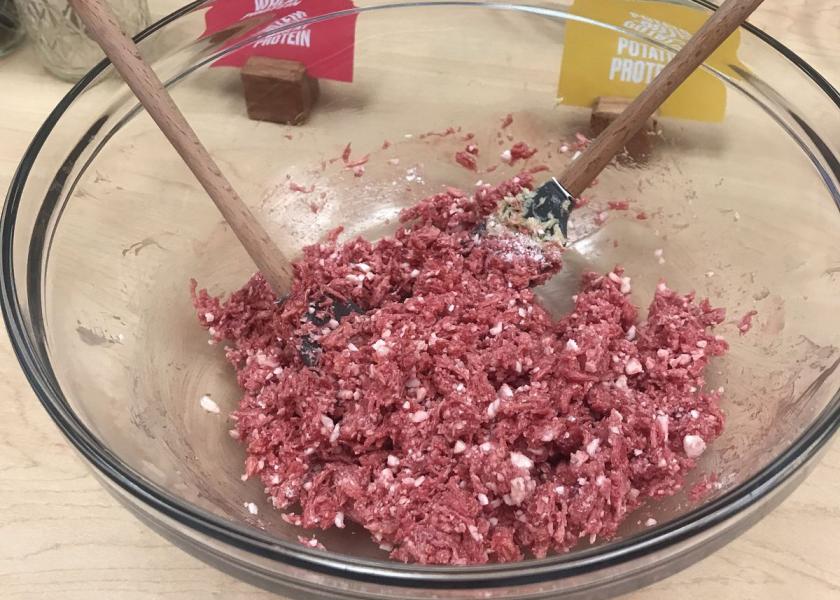Consumers Confused About Contents Of Fake Meat

The National Cattlemen’s Beef Association (NCBA) released survey results showing widespread consumer confusion regarding the ingredient composition and purported benefits of plant-based fake meat products.
In an online survey of more than 1,800 consumers, less than half of the respondents understood the labeling term “plant-based beef” was intended to describe an entirely vegetarian or vegan food product. One major source of confusion uncovered by NCBA’s research is that approximately one third of surveyed consumers believed that plant-based fake meat products contained at least some real beef in them. When asked to evaluate specific product labels and marketing materials from some of the leading plant-based fake beef products currently on the market, the results were astonishing:
- Nearly two-thirds of respondents believed the fake meat products produced by Beyond Meat, Impossible Foods and LightLife contained real beef or some form of animal byproduct;
- 32% of consumers who were shown a package of Beyond Meat’s “Beyond Burger” plant-based patties (which features a cow icon) told researchers that they thought the patties contained at least small amounts of real meat;
- 37% of consumers who were shown a package of Lightlife’s “Gimme Lean”, which features the word “Beef” highlighted in a red box, said the product contained at least some real beef. Neither product contains any real beef.

“The fact that so many consumers look at these labels and think that the products include meat or other animal by-products is a clear sign that the misleading labeling and deceptive marketing practices of plant-based fake meat companies has caused real consumer confusion,” said former NCBA President Jennifer Houston. “Many of these fake-meat products purposely use graphics and words that trade on beef’s good name, and it needs to stop immediately. Consumers rely on names and product packaging to inform their purchasing decisions, and they have a right to know that this information is accurate and not misleading.”
When asked to rank plant-based fake meat versus beef on a host of food attributes, the results were even more startling. For example:
- 44% of consumers believed plant-based products were lower in sodium, when leading plant-based fake beef is anywhere between 220 to 620 percent higher in sodium than the same size serving of real ground beef.
- A mere 24% of respondents correctly identified beef as being lower in sodium. Scientifically speaking, beef is considered to be an unprocessed or minimally processed food, whereas plant-based fake meat products are classified as an ultra-processed food product.
- Unfortunately, 34% of respondents believed plant-based fake meat to be less processed and another 34 percent believed fake and real beef products were equivalent on the food processing scale. On the broad category of healthfulness, more than half of consumers believed plant-based meat was better.
“This research is a wake-up call for our industry, the news media, and for federal regulators,” Houston said. “We in the beef industry need to do a better job educating consumers about the fact that beef is a nutrient-rich source of high-quality protein and essential nutrients that can play a key role in any healthy lifestyle. We also need reporters and regulators to understand how many consumers are confused and/or misinformed about exactly what’s in these new plant-based alternatives.”
The Food and Drug Administration (FDA) has the power to prevent this sort of consumer confusion. In 2020, NCBA said it hopes there will be an opportunity to work with the Agency to end inappropriate use of the word “beef” on all non-meat product labels.
Related stories:
Why I'm Freaking Out Over Fake Meat







